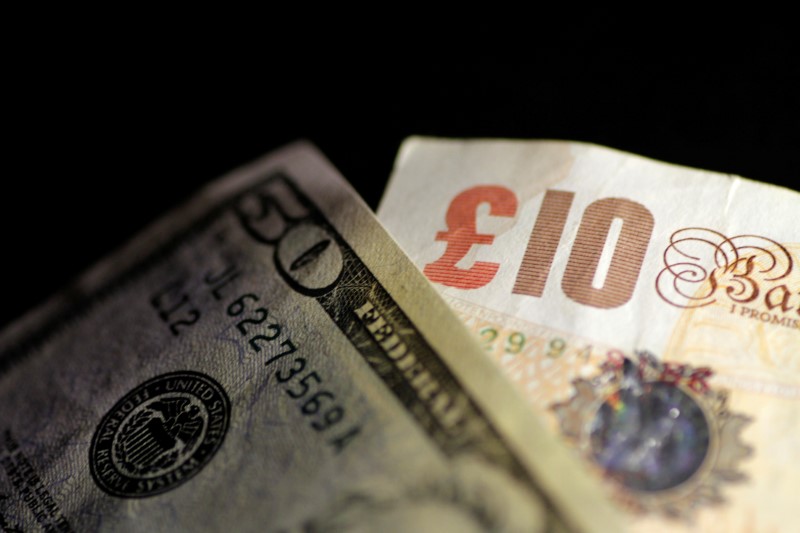By Samuel Indyk
Investing.com – GBP/USD hit its lowest level of the year for the second consecutive day on Friday before finding support ahead of 1.3350 and staging a slight recovery. Last week’s Bank of England interest rate decision, Thursday’s softer-than-forecast GDP and simmering Brexit tensions have all weighed on the pound. Broad US Dollar strength is also weighing on GBP/USD, with the US Dollar Index at its highest level since July last year.
Bank of England
Last week’s decision by the Bank of England to keep the Bank Rate unchanged at a record low 0.1% was the catalyst for the sharp move lower in sterling. The central bank had appeared to prepare markets for an interest rate hike but decided it would be prudent to wait amid near-term uncertainties, especially around the outlook for the labour market.
The BoE is still expected to lift its interest rate when it meets next month, with the CME’s BoEWatch tool assigning 100% probability of a rate hike. However, economists and analysts may be less sure, particularly after last week’s debacle.
Sluggish Growth
Yesterday’s GDP print caused another leg lower in GBP/USD with growth slowing to 1.3% in the third quarter from 5.5% in Q2. Analysts had forecast GDP to grow by 1.5% in Q3.
“The hope had been that once all COVID restrictions were firmly in the rear-view mirror the economic engine would be revved and ready but while the economy did grow between July and September that growth slowed considerably,” AJ Bell Financial Analyst Danni Hewson said.
Brexit rears its head
Over the last two weeks, tensions between the UK and the EU have increased, with fishing rights and the Northern Ireland protocol the two main areas of concern.
There has been a suggestion that the UK might trigger Article 16, a safeguard clause that allows either side to unilaterally suspend parts of the Brexit agreement in the event of major economic disruption.
Simon Coveney, the Irish Foreign Minister, stated that if the UK were to trigger Article 16 then the European Union could pull out of the Brexit trade agreement altogether.
The escalation has had an impact on the pound but analysts at ING don’t expect the current uncertainty to have as big an impact as previous Brexit noise.
“Could another round of Brexit headlines demand the kind of 5% 'no deal' risk premium seen in 2019?” the Dutch bank asks. “We suspect the impact on GBP is more muted this time around.”
In fact, the Times reported today that the UK is willing to step back from threats to trigger Article 16 and attempt to find an agreement with the EU.
UK Brexit Minister Lord Frost is due to meet EU Chief Negotiator, Maroš Šefčovič, later on Friday.
